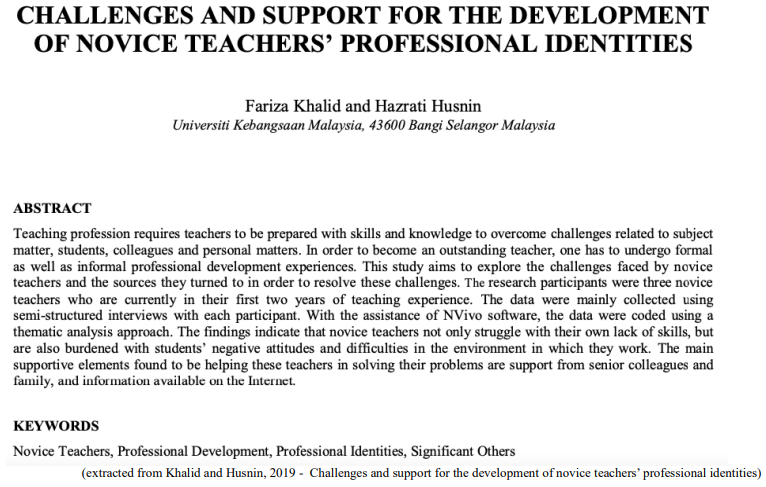Questões de Concurso Público Prefeitura de Juru - PB 2024 para Professor de Inglês
Foram encontradas 40 questões
Analise as seguintes afirmações sobre os diferentes tipos de sistema de arquivos:
I. O NTFS não oferece suporte a compactação de arquivos e pastas, exigindo que os usuários utilizem softwares de terceiros para compactar seus dados.
II. FAT16 refere-se ao sistema de arquivos File Allocation Table com uma tabela de 16 bits, tendo sido amplamente utilizado em sistemas operacionais mais antigos, como MS-DOS e versões iniciais do Windows.
III. EXT4 é um sistema de arquivo popularmente usado no Linux, e tem esse nome pois suporta tamanhos de partição de até 4 TB.
Está(ão )CORRETO(S):
“Para inserir um comentário, na guia ________, no grupo ________, clique em Novo Comentário.”
Assinale a alternativa que COMPLETA CORRETAMENTE as lacunas do texto.
I. O protocolo SMTP é utilizado somente para enviar emails, não para recebê-los.
II. A principal funcionalidade do protocolo POP3 (Post Office Protocol version 3) é o envio de emails.
III. O protocolo IMAP (Internet Message Access Protocol) é especialmente útil em ambientes onde o armazenamento local de emails é preferido, já que ele baixa os emails do servidor para o cliente de email e os armazena localmente, permitindo o acesso offline aos emails.
Está(ão )CORRETO(S):
I. Alunos com deficiência: aqueles que têm impedimentos de longo prazo de natureza física, intelectual, mental ou sensorial.
II. Alunos com transtornos globais do desenvolvimento: aqueles que apresentam um quadro de alterações no desenvolvimento neuropsicomotor, comprometimento nas relações sociais, na comunicação ou estereotipias motoras. Incluem-se nessa definição alunos com autismo clássico, síndrome de Asperger, síndrome de Rett, transtorno desintegrativo da infância (psicoses) e transtornos invasivos sem outra especificação.
III. Alunos com altas habilidades/superdotação: aqueles que apresentam um potencial elevado e grande envolvimento com as áreas do conhecimento humano, isoladas ou combinadas: intelectual, liderança, psicomotora, artes e criatividade.
Está(ão) CORRETO(S):
De acordo com o Estatuto da Juventude, são consideradas pessoas jovens:
I. As instituições do ensino fundamental, médio e de educação infantil mantidas pelo Poder Público municipal.
II. As instituições de educação infantil criadas e mantidas pela iniciativa privada.
III. Os órgãos municipais de educação.
Está(ão) CORRETO(S):

(A) The Natural Order hypothesis.
(B) The Affective Filter hypothesis.
(C) The Acquisition-Learning hypothesis
(D) The Monitor hypothesis
(E) The Input hypothesis
( ) This hypothesis reinforces that our ability to produce statements in another language is the result of unconscious knowledge and that conscious knowledge has the function of editing and correcting the output (oral productions).
( ) According to this hypothesis, learners who are poorly motivated, insecure, anxious and with low self-esteem would be prevented from connecting the input with the LAD (Language Acquisition Device).
( ) This hypothesis predicts that there is only one way to acquire the language: understanding messages.
( ) This hypothesis predicts that there are two ways to develop a second language. The first one would be unconscious and the second one would be conscious.
( ) This hypothesis suggests that we acquire the rules of a language regardless of how these rules are taught in the classroom.
( ) The comparative of short adjectives such as “pretty, happy and heavy” are “prettyer than, happyer than and heavyer than”, for the vowel “y” is preceded by another consonant.
( ) The comparative of long adjectives such as “beautiful, interesting and expensive” are “beautifuler than, interestinger than and expensiver than”, as the suffix “ER” is considered to be the general rule for those type of adjectives.
( ) The comparative of short adjectives such as “grey, fey and stray” are “greier than, feier than and straier than”, for the vowel “y” is preceded by another vowel.
( ) The comparative of Latin origin adjectives such as “basic, famous and competent” are “more basic than, more famous than and more competent than”, for using “more” before adjectives like those is considered to be the most adequate rule to use.
( ) The comparative of short adjectives such as “nice, wise and late” are “nicer than, wiser than and later than”, for they are all ending in “E”, and adding only the suffix “R” at the end of those type of adjectives is the correct rule to use.
( ) The superlative of short adjectives such as “fat, thin and big” are “the fatter, the thinner and the bigger”, for they all are ending in “C-V-C” (consonant-vowel-consonant).
( ) The superlative of irregular adjectives such as “good, bad and far” are “the goodest, the baddest and the farrest”, for adding the suffix “EST” at the end of those type of adjectives is considered to be the most appropriate rule to use.
( ) The superlative of long adjectives such as “pleasant, intelligent and successful” are “the most pleasant, the most intelligent and the most successful”, for adding “most” before those types of adjectives, instead of suffixes such as “ST, EST or IEST”, is the correct rule to use.
( ) The superlative of short adjectives such as “much, some and many” is “the most”, not because those adjectives are necessarily short, but because they are all irregular and share at certain point and extent the same semantics – meaning.
( ) If it is correct to say adjectives such as “bad, good and far” are irregular, it is also correct to say that the comparative of these adjectives are “worse than, better than and farther than” in this respective order.

“In order to become effective, teachers have to be professionally prepared. Teachers therefore need to experience continuing professional development so as to become more effective (Harris, 2002). For pre-service teachers, teaching practice is one of the key elements in their training (Haigh and Tuck, 1999; Hill and Brodin, 2004). Through pre-service training, student teachers are provided with experience in teaching and learning in and outside the classroom, as well as opportunities to enhance the development of their characters so as to become ethical and professional (Kennedy, 2006). Some past studies have proven that teaching practice helps pre-service teachers to have better discussions with lecturers and mentors, and thus helps pre-service teachers to determine the approaches to use and their implications in teaching (Botha and Reddy, 2011; Agbo, 2003). In addition, teaching practice has been found to help pre-service teachers to enhance those skills related to problem identification, decision making, and the selection of approaches to overcome problems in classroom situations, and has also been found to be incredibly significant in developing pre-service teachers’ confidence in themselves (Khalid, 2014). Nevertheless, teachers’ professional development is not merely limited to preservice training. Berliner (1995) views the initial stage of new teachers’ professionalism as the critical stage in which novice teachers will face numerous conflicts, responsibilities and tasks”.
That being said, relying on linguistic skills and reading techniques, check the answer which is associated with the global meaning of the excerpt of the paper provided.